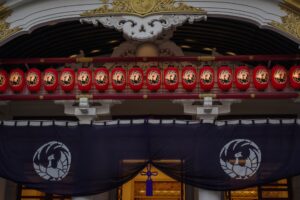Japan has White Day One Month after Valentine’s Day

We all know that there is Valentine’s Day. In Japan, a day called White Day was created around 1970, and now it is as popular as Valentine’s Day. White Day is a day when men who receive gifts such as chocolates on Valentine’s Day (February 14) give gifts in return to women on March 14, one month later.
How did White Day come about?

On Valentine’s Day in Japan, it is customary for women to give chocolates to men. It is also said to have originated from a campaign by a chocolate company.
There are many theories about the origin of White Day, but it is also said to have been created by companies. As with Valentine’s Day, various companies launched White Day campaigns in the 1970s as a way to return the favor of Valentine’s Day. For example, Fujiya’s “Return Valentine’s Day” and Ishimura Manshodo’s “Marshmallow Day” when they released white marshmallows. In 1978, the National Candy and Confectionary Industry Cooperative set March 14 as the answer day to Valentine’s Day as “White Day is a day to give candy. The term “White Day” was first used with teenagers in mind, and was named after the image of pure white and the freshness of youth. That phrase has stuck and is used to this day. While the image of Valentine’s Day is red and chocolate brown, White Day is often based on light blue and white. Perhaps it comes from this image of freshness.
Why did it set the date to March 14?

The reason why White Day is now on March 14 is actually related to the origin of Valentine’s Day.
In the ancient Roman era, Valentine, a clergyman, took compassion on a soldier and his lover, for whom free love was prohibited by state policy, and held a secret wedding. The emperor found out about it and executed Valentine on February 14, which became Valentine’s Day. One month later, on March 14, the soldier and his lover pledged their love once again and got married. It is said that White Day was decided to be held on March 14 in honor of this.
Gifts given on White Day had a meaning

On Valentine’s Day, there is a custom in Japan to give chocolates to the person you love and to tell him or her your love. Therefore, White Day was also meant to be a way of answering to the person who loved you. Nowadays, neither Valentine’s Day nor White Day has such a meaning, and it is just a day to give chocolates to your close friends and return them. However, in the past, the gifts given on White Day had a meaning.
Candy
Giving candy in return means “I love you”. Since candy is hard and to be savored slowly, it meant “keep loving your partner for a long time.
Cookies
Cookies are crispy and easy to crack, so they meant “please be my friend”. They also meant “one of the many” or “not special” because there are many kinds of cookies. Nowadays, such meanings have disappeared, and giving cookies in return is most standard.
White Day fits the Japanese character.
It is said that Japanese people are very conscientious and give back when they receive something. It is difficult for a person to not give something back, and Japanese people have the impression that people who do not give anything back are not polite. It is thought that these characteristics have led to the widespread acceptance of White Day.











